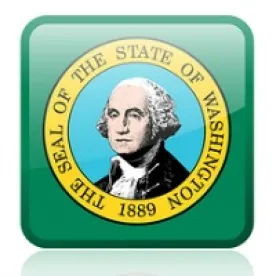The times they are a-changin’ and Washington’s rules relating to overtime pay are changing with them. Effective July 1, 2020, the Washington State Department of Labor & Industries (“L&I”) has updated the criteria for workers to be exempt from receiving overtime pay, paid sick leave, and other requirements under the state Minimum Wage Act. These changes affect executive, administrative, and professional workers, as well as outside salespeople and computer professionals across all industries in Washington State.
Overtime exemption rules generally require “white collar” – those performing executive, administrative, and professional duties – employees to meet a three-part test to be exempt; the worker must (1) be paid a fixed salary, (2) perform certain types of job duties, and (3) be compensated at or above a minimum salary threshold. The L&I’s revised rules change the minimum salary level and the job duties test.
Changes to the Minimum Salary Level
Under the approved changes, the minimum pay a salaried worker must receive to be considered overtime-exempt will increase incrementally to 2.5 times the state minimum wage by 2028. Small employers (1–50 Washington-based employees) will have a more gradual phase-in schedule to give them additional time to comply with the new rules as compared to large companies (51 or more Washington-based employees). There is also a separate phase-in schedule for computer professionals who are paid on an hourly basis. The new salary threshold is set at just over $35,000 annually, which will then increase to an estimated $83,356 a year by 2028, when the new rules will be fully phased in.
Despite the new rules, Washington employers should continue to follow the current federal salary guidelines for white-collar workers until 2021. Effective January 1, 2020, the U.S. Department of Labor updated the federal overtime rules and increased the minimum salary threshold for white-collar workers to $684 per week ($35,568 per year). When state and federal thresholds conflict, businesses must meet the threshold most favorable to employees. Therefore, until January 1, 2021, Washington businesses must use the federal threshold because it is higher than the salary threshold ($675 per week) provided under the revised state rules.
On January 1, 2021, employers should begin following the new Washington rules because the state threshold will become more favorable at $827 a week (1.5 times the state minimum wage) for small employers, and approximately $965 per week (1.75 times the state minimum wage) for large businesses.
|
|
July 1, 2020 |
Jan. 1, 2021 |
Jan. 1, 2022 |
Jan. 1, 2023 |
Jan. 1, 2024 |
Jan. 1, 2025 |
Jan. 1, 2026 |
Jan. 1, 2027 |
Jan. 1, 2028 |
|
Employers with 1–50 employees |
$675 ($35,100) |
$827 ($43,004) |
$986 ($51,272) |
$1,008 ($52,416) |
$1,177 ($61,204) |
$1,202 ($62,504) |
$1,382 ($71,864) |
$1,412 ($73,424) |
$1,603 ($83,356) |
|
Employers with 51+ employees |
$675 ($35,100) |
$965 ($50,180) |
$986 ($51,272) |
$1,152 ($59,904) |
$1,177 ($61,204) |
$1,353 ($70,356) |
$1,382 ($71,864) |
$1,568 ($81,588) |
$1,603 ($83,356) |
Minimum Wage Increases
As the white-collar salary threshold is tied to the minimum wage, it is important to note that Washington’s minimum wage increased on January 1, 2020 from $12 per hour to $13.50 per hour. This was the final increase imposed by Initiative 1433, which was approved by voters in 2016. Now that the step-increases are complete, beginning in 2021, and each year thereafter, L&I is required to make annual cost-of-living adjustments to the minimum wage based on the federal Consumer Price Index for Urban Wage Earners and Clerical Workers (“CPI-W”). While the salary threshold is tied to the state minimum wage, employers with workers operating in Seattle and the city of SeaTac should recall that those cities have their own minimum wage.
Changes to the Job Duties Tests
In addition to the increase in the minimum salary level, the new rules update the job duties tests, which describe the duties a worker must perform to be classified as exempt. The duties test involves an analysis focused on what the worker actually does, rather than their job title or job description. Specifically, L&I will now use one test for each exemption category, with language that more closely aligns with the federal job duties tests under FLSA, rather than the previous two job duties tests per category. Importantly, however, Washington continues to depart from federal rules in one key way: the state rules do not recognize an exemption for highly-compensated employees.
Employer Action
Employers in Washington should review their employee classifications and minimum salaries to ensure compliance with the new overtime rules. If an employer wishes to maintain an employee’s exempt status, the employer needs to ensure that the worker meets the new duties test requirements and is paid at least the minimum salary threshold requirements, even as they increase over the next eight years.





 />i
/>i
